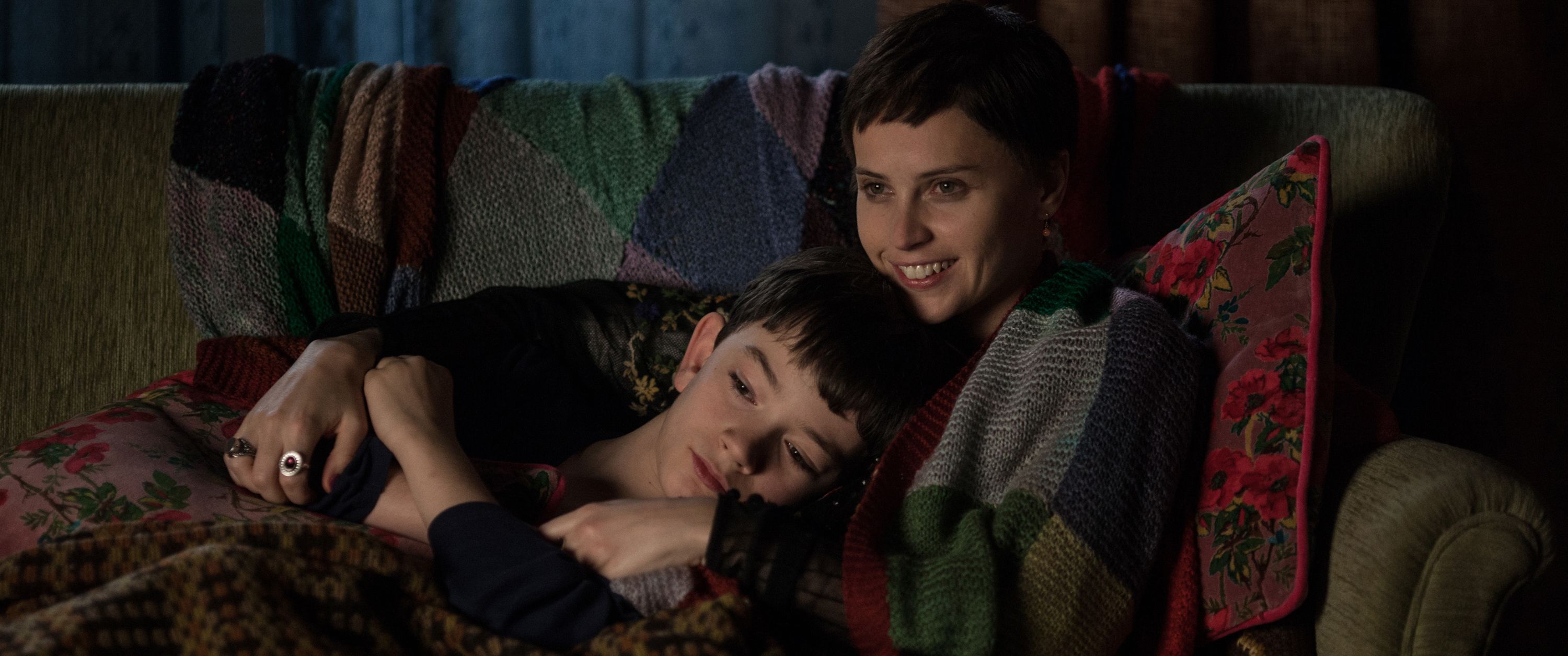Patrick Ness’ short novel A Monster Calls, itself based on an idea by Siobhan Dowd, finally made the leap from concept to cinema blockbuster in late 2016/early 2017. Bittersweet is a term which will be re-visited in this review; Siobhan sadly passed away from terminal breast cancer in 2007, tragically never witnessing either the Carnegie or Greenaway medals Ness for writing and Jim Kay for illustrating won, nor its cinema success.
Book and film (directed by J. A. Bayona) follows misunderstood ‘not a boy, not yet a man’ Conor O’Malley (Lewis MacDougall), who is facing struggles and heartbreaks beyond his tender age. Bullied on a regular basis, and dealing with his beloved mother’s body rejecting ongoing treatments for her terminal illness, the boy unknowingly calls upon a Monster (voiced brilliantly by Liam Neeson). Conor is informed that he will need to listen to three stories from Neeson’s character, before he must tell his own, gut-wrenching fourth tale: the truth.
The film covers a broad range of sensitive topics including school-yard tormenting, fear/anxiety, and serious illness – the selection of both well-known and upcoming actors and actresses convey the feelings and emotions scripted to these troubles sensationally, appearing as if they were experiencing the storyline in real life. MacDougall is compelling as Conor; he acted at the standard of a professional who has spent decades in the industry, and will be a star of the future. At just 14 years of age, he convincingly displays anger towards a prospect of living with his grandma, in addition to guilt and overwhelming terror expressed in reaction to the reoccurring nightmare of ‘letting go’ of his cherished mother. A dynamic, endearing relationship is portrayed between Conor and mum Elizabeth (Felicity Jones); as a viewer you sense that they are each other’s world, sharing an unbreakable bond even during the toughest moments.
Sigourney Weaver’s character as Conor’s grandma experiences character development throughout the film; initially she seems rather callous, but later on in the film you realise she only has ever wanted the absolute best scenario for both Elizabeth and Conor, despite this act of caring coming across as cold at times.
One major critique film adaptations of universally loved books tend to receive is skimming and/or ignoring minor and major sequences, consequently creating plot-holes and leaving legions of fans frustrated with the film version, proclaiming ‘the book was always going to excel the film’. A Monster Calls sticks extremely closely to the script and premise of the book, due to Ness’s contribution as writer of the screenplay. Ness’ symbolism and foreshadowing techniques come to life in the film, and there is a link established between the yew tree (Neeson’s monster) and another character which provides satisfying closure by the end credits.
VERDICT
A Monster Calls provides a bittersweet, honest take on tragedy and much more, staying rightfully loyal to its original book roots. The casting choices are excellent and it is a visual gem, as well as having a genuinely moving script.
Rating: 9/10
Words by Georgia Stephenson.

![A MONSTER CALLS - Official Trailer [HD] - In Theaters December 2016](https://i.ytimg.com/vi/WMgm20Di9Wg/hqdefault.jpg)

Excellent review. Well presented & extremely informative without giving away any spoilers. 10/10 WELL DONE ??